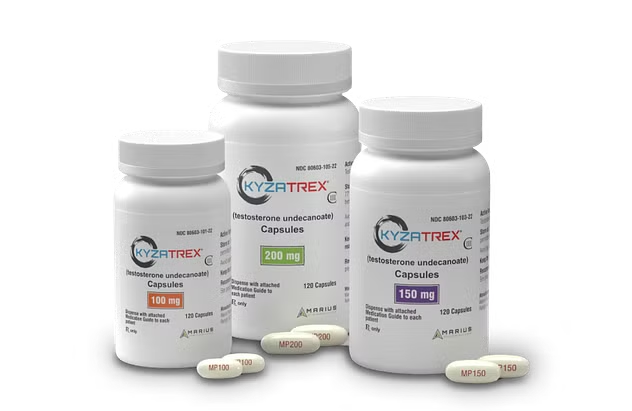Kyzatrex: A Safe and FDA-Approved Solution for Testosterone Replacement Therapy
Testosterone replacement therapy (TRT) is essential for men suffering from hypogonadism, a condition characterized by low testosterone levels that can lead to fatigue, depression, reduced libido, and decreased muscle mass. Among the various TRT options, Kyzatrex has emerged as a standout choice due to its superior safety profile, ease of use, and recent FDA approval. This article delves into why Kyzatrex is considered a safe and effective treatment, emphasizing its non-impact on liver function and regulatory endorsement.
1. FDA Approval: A Mark of Trust
Kyzatrex’s approval by the U.S. Food and Drug Administration (FDA) underscores its safety and efficacy. The FDA’s rigorous approval process involves extensive clinical trials and evaluations to ensure that any new medication meets stringent safety and efficacy standards. For Kyzatrex, this approval signifies that it has passed multiple phases of testing, demonstrating not only its ability to effectively raise testosterone levels but also its safety for long-term use.
2. Non-Impact on Liver Function
One of the primary concerns with oral medications, particularly hormones like testosterone, is their potential impact on liver function. Historically, some oral testosterone formulations have been linked to hepatotoxicity, causing liver damage or dysfunction. This concern stems from the liver’s role in metabolizing these medications, which can lead to liver strain and damage.
Kyzatrex, however, has been specifically formulated to mitigate this risk. Its design allows it to bypass the first-pass metabolism in the liver, significantly reducing the potential for liver-related side effects. Clinical trials have shown no significant increase in liver enzymes, which are markers of liver stress or damage, in patients taking Kyzatrex. This makes Kyzatrex a safer alternative to older oral testosterone therapies that posed higher risks to liver health.
3. Stable and Consistent Testosterone Levels
Injectable testosterone therapies often lead to peaks and troughs in testosterone levels, causing fluctuations that can result in side effects such as polycythemia (an increase in red blood cells) and mood swings. These fluctuations can also strain the liver due to the varying levels of hormone processing required.
Kyzatrex, on the other hand, provides a steady and consistent release of testosterone, maintaining stable levels throughout the day. This consistent release reduces the risk of polycythemia and other side effects, offering a smoother and more predictable therapeutic experience. The stable hormone levels also mean less metabolic stress on the liver, further enhancing Kyzatrex’s safety profile.
4. Convenience and Compliance
The convenience of an oral regimen cannot be overstated. Injectable testosterone requires regular visits to a healthcare provider or self-injections, which can be cumbersome and often lead to poor compliance. Poor compliance can result in inconsistent hormone levels, potentially exacerbating side effects and reducing the therapy’s effectiveness.
Kyzatrex’s once-daily oral administration simplifies the treatment process, making it easier for patients to adhere to their prescribed regimen. Improved compliance leads to more consistent therapeutic outcomes and a reduced likelihood of side effects, contributing to overall safety.
5. Comprehensive Clinical Evidence
The clinical trials leading to Kyzatrex’s FDA approval provide robust evidence of its safety. These trials involved diverse populations and extensive monitoring, including assessments of liver function, cardiovascular health, and overall well-being. The data consistently showed that Kyzatrex effectively raised testosterone levels without causing significant adverse effects, particularly regarding liver health.
6. Patient-Centric Design
Kyzatrex has been developed with patient safety and convenience in mind. Its formulation ensures optimal absorption and minimal impact on liver function. The ease of oral administration and the reduction in injection-related complications make it a patient-friendly option. For men who require TRT, Kyzatrex offers a balanced solution that prioritizes both efficacy and safety.
Conclusion
Kyzatrex stands out in the realm of testosterone replacement therapy for its superior safety profile, non-impact on liver function, and FDA approval. Its design ensures stable testosterone levels, reducing the risk of side effects commonly associated with other TRT methods. The convenience of an oral regimen enhances patient compliance, leading to better therapeutic outcomes. For men suffering from hypogonadism, Kyzatrex represents a reliable and safe option that can significantly improve quality of life without compromising liver health.






